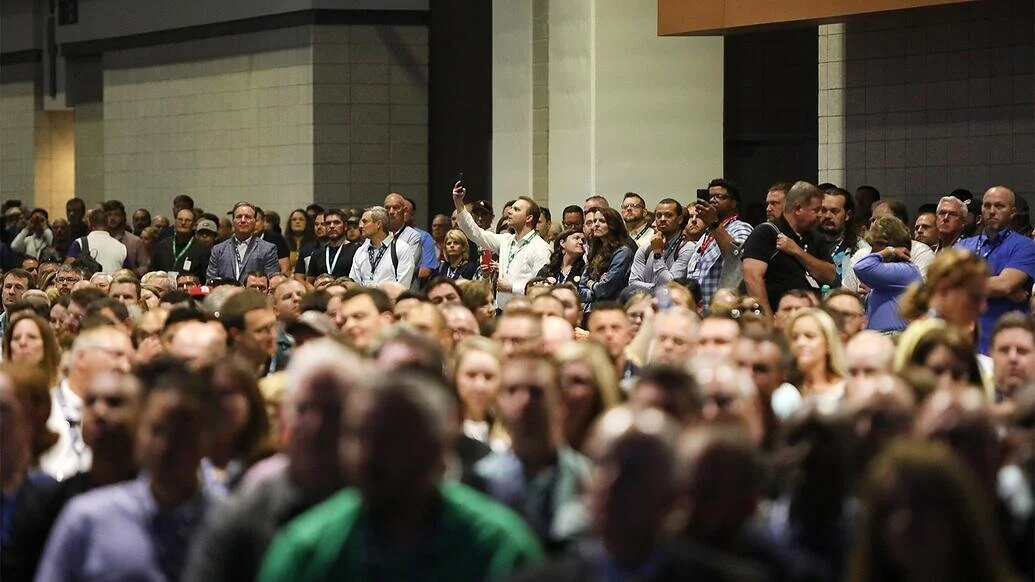When I was a child, one of my favorite toys was something called the View-Master. Do you remember the View-Master? It was this binocular-shaped plastic device into which you would put thin cardboard discs containing seven pairs of small transparent color photographs. When you looked into the View-Master, you would see a 3-D color image that told a story when combined with the other pictures. I know it dates me, but View-Master was the VR goggles of my childhood. The picture below is my childhood View-Master that I still have!
View-Master discs were produced for everything, including well-known cartoons and comics, movies, educational information, and even Bible stories. What you saw through the lenses obviously depended totally upon what disc was in the device.
Our worldviews are like View-Master discs. Each person has foundational pre-installed discs filled with a set of assumptions that determine how they understand and operate in the world.
Because worldview drives how we live our lives, differences in worldviews lead to significant disagreements on what is right and what is wrong. The gulf between worldviews is expansive and ever-expanding in our world today. It has contributed to the overwhelming polarization that affects our nation and the whole world.
There is a massive gulf between a secularist worldview and a Biblical worldview in our culture. But the differences are more complex than just Christian/non-Christian. Within the brotherhood of believers, I also see massive secondary worldview differences between, for example, Boomers and Millennials.
For that reason, we need to be careful when it comes to defending our worldview. Before we assume the disc installed in the mental View-master of the person we are at odds with is unbiblical, we need to be discerning.
Although it's far too simplistic, I break worldview down into two different "discs." One is convictional and the other is cultural. Our convictional worldview must flow directly from the Bible and is a disc that cannot be removed if we are genuinely Christian. The images on the convictional worldview disc are the foundational truths of the faith (the triune nature of God, the deity of Christ, the authority of Scripture, etc.). These are immovable convictions that inform the way we look at everything.
These convictions cannot change if one is to be a genuine Chrisitan. The "deconstruction" movement affecting many young evangelicals is nothing more than the attempt to exchange the Biblical disc for something else.
On the other hand, the cultural disc comprises images that indeed drive who we are but can vary from culture to culture and even generation to generation. Some of these may be more consequential and important than others, but they are not immutably grounded in the Word of God.
The Apostle Paul knew the difference between the cultural and convictional in his missiology. To see this, simply look at the difference between how he reasoned with Jews (Acts 13:16-41) and the Athenians (Acts 17:22-31). Paul never gave ground on his convictions, such as the resurrection, but he did adjust to cultural differences (see 1 Corinthians 9:20-23).
To flesh this out more for our context, the convictional disc of Christians will not allow us to embrace the transgender ideology and the sexual ethics so promulgated in our day by those whose convictional disc is secular or pagan. Why? Because sexual ethics are grounded in God's Word.
On the other hand, two different believers' cultural disc may differ even though both share a Biblical worldview. For example, a Baby-boomer's cultural disc may cause him to think of patriotic duty utterly different from the way a Gen-Zer would.
To that point, I recently heard a story of a fresh, young pastor who removed the American flag from the stage of the country church he had just been called to because he was concerned that it promoted idolatry of America and distracted from the gospel. As you might have already surmised, it cost him his job. This zealous pastor and his equally zealous congregation had failed to recognize the gap between their cultural discs. Had there been more awareness and sensitivity on both sides, they could have found a way to honor our American heritage while remaining God-centered.
The differences between cultural worldviews within the church can be substantial and touch upon leadership styles, worship expressions, social responsibility, political involvement, global relations, communication platforms, etc. But they are not insurmountable. Even secondary theological issues can cause significant gaps between our cultural worldviews that do not need to divide us.
So we must be discerning in the battles we pick and the energy we expend. There are presuppositions at the heart of every worldview. Some of those presuppositions are cultural. Others are convictional.
It's the convictional presuppositions that are most important. As believers, when we engage a lost world, we must be willing to defend the gospel in such a way that we show unbelievers that their fundamental assumptions (their preinstalled convictional discs) do not line up with reality and that only the Biblical worldview sees the world as it actually is. We must rely on the Gospel of Jesus Christ to accomplish a supernatural work of changing out their disc so that they may have eyes to see for the first time. Our hope is that Jesus will be their new View-Master.
And for those secondary issues that populate our cultural discs, let us learn how to disagree agreeably, show deference out of love, and humbly learn from one another. Especially in the church.







